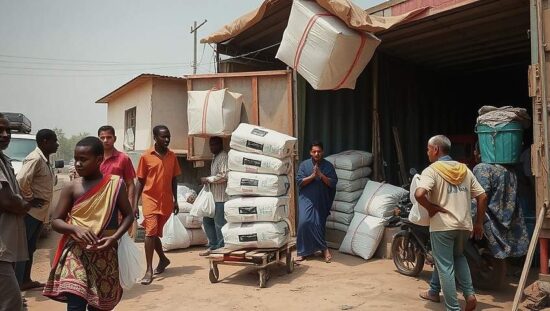Humanitarian organizations are issuing increasingly urgent warnings regarding access restrictions within the Gaza Strip, highlighting a rapidly deteriorating situation and criticizing Israel’s control over aid delivery. Several prominent German relief agencies, including Johanniter-Auslandshilfe, the German Red Cross and Doctors Without Borders, are voicing concerns over the collapse of Gaza’s healthcare system and the escalating risks of desperation-fueled disruptions to aid convoys.
Susanne Wesemann, head of Johanniter-Auslandshilfe, emphasized the critical need for the Israeli government to grant unconditional and comprehensive access for established humanitarian organizations and their supplies. Christian Reuter, Generalsecretary of the German Red Cross, explicitly warned that insufficient aid deliveries heighten the potential for desperate attempts to seize supplies. Lara Dovifat, leading the political affairs department for Doctors Without Borders, underscored the immense strain on her organization’s teams due to the persistent shortages.
The organizations are painting a picture of a bureaucratic nightmare, detailing severe limitations on personnel able to cross the border. Cadus, another significant relief organization, revealed that the pre-crossing approval process is protracted and that decisions regarding personnel authorization are made only at the border, frequently without explanation for denials. This unpredictable nature dramatically hampers planning and responsiveness to emergent needs.
Despite the formidable challenges, these organizations remain committed to ongoing operations in Gaza. Sebastian Jünemann, Co-Managing Director of Cadus, stressed that even a cessation of hostilities will not immediately alleviate the region’s profound infrastructural damage. “Schools, homes and hospitals cannot be rebuilt overnight” he stated, underlining the continued dependence of Gaza’s population on international assistance, particularly from Germany, for basic survival and eventual recovery. The organizations’ statements subtly challenge the Israeli government to reconsider its current policies, emphasizing that restricted access not only exacerbates the humanitarian crisis but also risks undermining long-term stability and reconstruction efforts.





